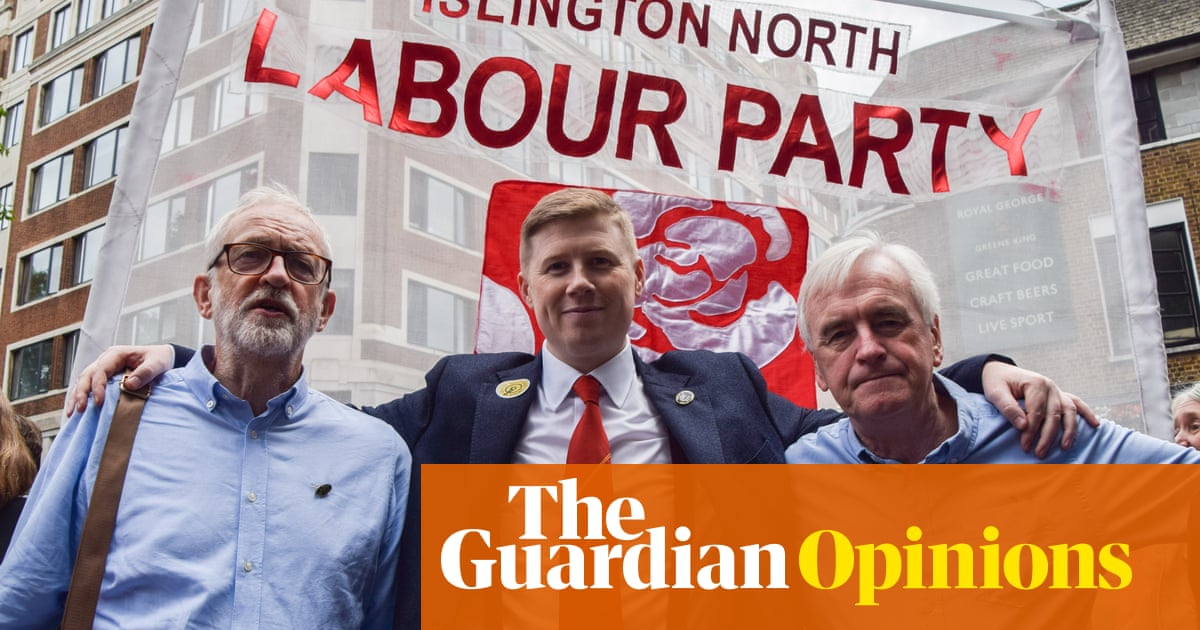
early a decade ago, the Tory baroness Sayeeda Warsi declared that bigotry towards Muslims has “passed the dinner-table test”. This isn’t to say that other forms of racism and bigotry aren’t rampant, or indeed hardwired into British society and its institutions – such as the disproportionate levels of poverty or police harassment endured by black Britons. What it does mean is that people in this country can say virtually anything about Muslims – including those with power, social cachet and influence – without consequence.
One study from the Muslim Council of Britain finds that most newspaper coverage of British Muslims is negative, including 78% of stories in the Mail on Sunday. Rod Liddle, columnist at The Spectator, can write columns arguing “there is not nearly enough Islamophobia within the Tory party” and for elections to be held when Muslims cannot vote, and have his journalistic career remain intact. Boris Johnson, a former Spectator editor, can pen a screed comparing veiled Muslims to “letterboxes”, triggering a 375% surge in Islamophobic incidents, and still become prime minister. Half of Conservative party members can express the belief that Islam – a religion observed by 2.5 million Britons – is “a threat to the British way of life”, and no general outrage is triggered.
Most British Muslims support Labour, but their votes should not be taken for granted. A decade ago, the Labour MP Phil Woolas was ejected from parliament for lying about his Lib Dem opponent in the 2010 election – leaflets distributed by Woolas claiming that Watkins had “wooed” Islamic extremists and failed to condemn radical groups attacks were ruled by an election court to be deliberately misleading.
When the then deputy leader, Harriet Harman, said he had no future in his party, a mutiny of Labour MPs took place. This was not an isolated incident. Anti-Muslim sentiment remains ingrained in the Labour party, as revealed in a recent report by the Labour Muslim Network, which found that 29% of Muslim members and supporters had experienced Islamophobia in the party, 44% did not believe the party took the issue seriously, and 48% didn’t believe the party would deal with it effectively in its complaints process.
Which brings us to the case of the property developer David Abrahams, who funded New Labour reportedly to the tune of hundreds of thousands of pounds. After Keir Starmer wrote to wealthy former donors – Abrahams included – asking for them to resume their financial support, the property developer declared that he had set up a direct debit to provide Labour with cash. Since then, a litany of Islamophobic tweets has been exposed by the Guardian: from declaring he doesn’t “know how to divide political Islam from moderates and fundamentalists” because: “It is the very nature of the beast!” to declaring Israel’s neighbours “chose terrorism and invented suicide bombers”.
Labour has said it cannot find any record of new funds from Abrahams and will not accept any of his money, but an investigation is to take place given he is a member of the party. If any good comes out of this episode, it is to open up a conversation about how Islamophobia has been mainstreamed – including in many progressive circles – and must now be fought. After all, Labour is right to tackle antisemitism within its own ranks and the record level of anti-Jewish hate crimes in British society as a whole also needs to be confronted. Now that the Equality and Human Rights Commission has issued directives that Labour is legally bound to implement in order to tackle antisemitism, the party must confront its wider problems of racism, too.
As well as Islamophobia, black, Asian and minority ethnic Labour party staff members have expressed fears of a “hierarchy of racism”, not least after a leaked report suggested alleged racist abuse by Labour officials against black Labour MPs. Failures by the Labour leadership to unequivocally oppose the deportation of people who have lived in Britain since they were children – even after the Windrush scandal – only fuel such claims. Indeed, it is notable that Abrahams himself once tweeted that black South Africans he spoke to “preferred white rule as less corrupt and more viable and professional”, suggesting prejudices not confined to Islamophobia.
It’s worth reconsidering Warsi’s comments made a decade ago. If Abrahams isn’t expelled from the party, then what message is to be sent, both to Muslims and the bigots who menace them? Fears that Islamophobia is permissible, and even officially sanctioned, will have greater justification.
It underlines, too, how those within Labour demanding that the leadership dilutes its dependence on trade union funding in favour of wealthy individuals are inviting trouble. Unions are democratically accountable mass organisations with publicly transparent policy agendas. Wealthy individuals will open up their cheque books and declare, as Abrahams has, that he would be “happy to donate more” if the party commits to “the right policies”. Labour was founded to be the political wing of working people – the clue being in the name – and attempts to distance itself from these roots will prove morally hazardous.
Anti-Muslim bigotry is rampant in British society. Starmer’s team are right to refuse Abrahams’ money, and build on those foundations to confront a prejudice that infects Labour’s own membership. By kicking Abrahams out, the party can show British Muslims that there is no place for racism in the party, or the country. The decision isn’t a hard one.
• Owen Jones is a Guardian columnist












